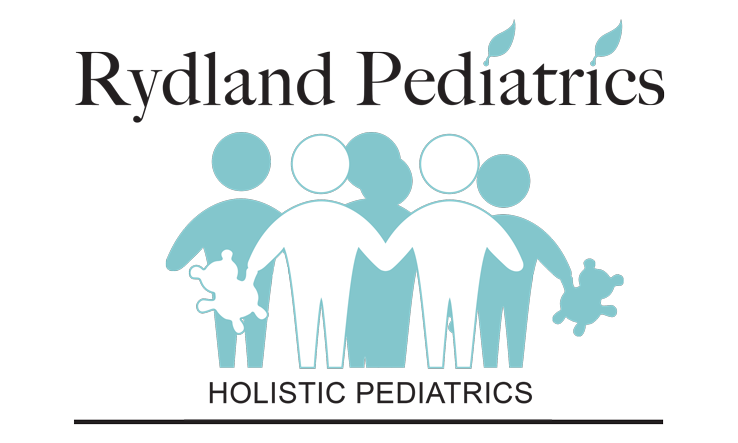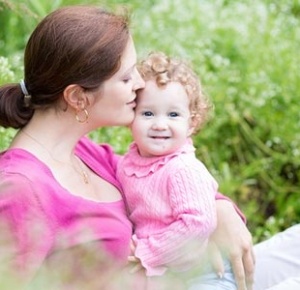Baby’s First Solid Foods
- July 15, 2014
- Diet and Nutrition
Pediatrician Dr. Eric Rydland, M.D.
The time has finally arrived to start your baby on solid foods–or has it? What’s the best way to do it? What sort of precautions should you take? What should you watch out for? It may not be as simple as you thought.
There are many different opinions concerning the time to introduce baby’s first solids. As a general rule, solids should only be started prior to six months if your baby shows an intense need (which is usually obvious).
Many years ago it was common practice to begin solids at just a few weeks of age. It has been found since then that a higher percentage of “early-fed” children would develop food allergies and/or have problems with being overweight.
Although the American Academy of Pediatrics has recently modified its stance and said that one can start solids between four and six months, I feel that as long as there is adequate weight gain (and many breastfed infants normally have a drop in their weight percentiles at four to six months) and the baby is not showing a “need”, foods should be introduced as late as possible. There are occasionally babies that refuse solids even up to 12 months of age. Any child that does this by that age should be carefully evaluated. Frequently this indicates a zinc deficiency.
Once the decision has been made to begin solids, I usually discuss what I feel is the best way. The time-honored tradition of introducing cereal first probably started when babies were formula-fed and needed iron supplements. However, it has now been discovered that they do not digest grains very well until eight or nine months of age.
I therefore suggest that we begin with fruit and vegetables for the first two to three months of solid foods with later introduction of whole grains such as brown rice cereal, wholewheat cereal, oatmeal and meats, if desired. It is best to give homemade rather than “jar” baby food if possible. In this country, perhaps because of the environmental deterioration, processed and chemical-laden diet and/or high stress factors, we tend to have a great deal of allergies. This can be minimized or even prevented by proper early food introduction.
I begin first with the following foods which have the least potential to sensitize individuals: peaches, pears, applesauce, bananas, sweet potatoes, yellow squash, carrots, green beans and green peas. Every individual food should be “tested” for at least a week before another is introduced. During this time, carefully observe any changes in your baby. The initial feedings of any new food should be relatively small amounts. Then over the next day or so the amount is increased. At the end of the “testing” period for the first food, a second food is introduced to the diet. For example, both foods are given as desired during this week.
It is best to avoid for 12 months the following foods: honey, which may cause a nervous disease called botulism; eggs, citrus, tomatoes and all dairy products to prevent allergies.
During the first week or two it is best to feed your baby solid foods only once daily. Usually I recommend this be at the same time that the others in the family eat together and at the most relaxed meal. During the subsequent few weeks, gradually two or three more meals are introduced, the third being the optional mid-afternoon snack.
In order to keep an adequate milk supply, it is optimal for breastfed babies to nurse before and after meals as much as possible. When vitamins should be started depends on what milk the baby is drinking. When the baby is formula feeding, start vitamins at one to two weeks of age. Add vitamins if your baby is breastfeeding and supplementing at least half of the time with formula. If only breastfeeding when solids are introduced, add vitamins to baby’s diet.
Dr. Eric N. Rydland, graduated from the University of Miami undergraduate and School of Medicine in 1974 and 1978 respectively and completed his pediatric training at the University of Miami Affiliated Hospitals in 1981. He is pediatric board certified by the American Board of Pediatrics. During his nearly 30 years of clinical experience Dr. Rydland has researched and studied the holistic field and alternative treatments. Integrating these holistic treatments with traditional medical care based upon the wisdom only God can give, has given thousands of patients optimal health benefits. This has been achieved through work with many published authors in the alternative field, his experience, and devine wisdom. In addition to the kidsWellness products our site features other products he uses in his clinical practice. Dr. Rydland is a frequent guest on radio and television, speaker at medical seminars and public conferences, and a published author. He is the Founder and Developer of kidsWellnessTM Incorporated (October 1999)
Upcoming Events
- No Events
WHAT OUR PATIENTS ARE SAYING
Testimonial 1
How I wish I weren't writing this and that by some feat of providence we could have brought you with us to Texas – I don’t know if I’ll ever have the confidence and esteem for another pediatrician that I felt when consulting with you about Frank’s health. Thank you so much for being there when we needed you! Again thank you for everything!
Testimonial 2
Sheri, Hollywood
Sheri, Hollywood
Testimonial 3
Elizabeth, Miami Springs
Elizabeth, Miami Springs



